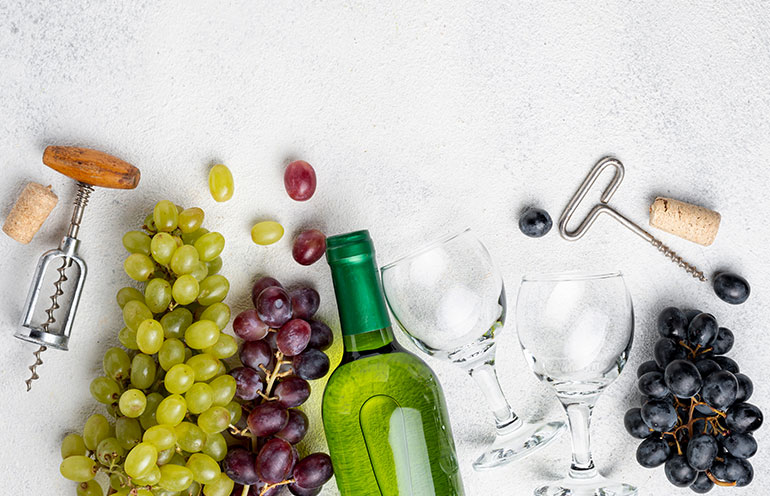In the world of wine, you may be surprised to learn, not all glasses are made equal. If you want to get the best out of your red, keep the bubbles in your champagne or give your next rose the respect it deserves, you may well need to pay more attention to the glass you decide to use. Here’s our quick guide to four glasses that should just about cover everything and should be in your cupboard. One rule you should always observe, first of all, is to buy wine glasses that taper inwards towards the top.
The tall, thin flute: perfect for bubbly
For champagne and sparkling wine there’s nothing better than the tall, thin flute, especially if you want to preserve the bubbles as long as possible. That’s what the narrow design and opening actually does. One tip to keep in mind is that you should avoid washing flutes in the dishwasher as the soap can coat the inside of the glass and stop bubbles forming when you pour out your champagne.
Smaller white wine glass: chilled to perfection
White wine glasses are a little smaller than your average red wine ones. That’s because you want to be filling the glasses with less wine and topping up more often – whites are generally chilled and if you leave it in the glass too long then it’s going to warm up. To keep it cooler for even longer, always hold the glass by the stem as much as you can.
Red wine glasses: the connoisseurs choice
Your ideal glass for red wine should be much bigger and that’s because you want to catch all those wonderful aromas and flavours as much as possible. You’ll want to move the wine around in the glass with a gentle swirling motion. A larger glass also enables your wine to breathe properly. There is a much wider range of red wine glasses on the market and it’s worth investing in a good quality set if you it’s an area that you want to explore more deeply.

Glasses for sweet and fortified wines
These are much smaller than other wine glasses, mainly because it’s not the kind of drink that you polish off in one sitting. There’s still room to swirl the wine around but you’ll be perhaps having one or two glasses at most. These are great for aperitifs before you start the main meal. People used to opt for the traditional sherry glass for this but it’s well worth investing in something a little more classic in design.
Do you need a decanter?
Most people, frankly, don’t bother with decanting – the process of gently pouring wine into an open container so that it can breathe. While it is often seen as an affectation, if you have a wine that comes with a sediment then it’s the best way to avoid those bits at the bottom getting stirred up. If you’re having a special meal, decanting can often provide a little drama to the occasion especially if you’re indulging in a high quality bottle of wine.
Cleaning your wine glasses
For normal wine glasses, some soapy water and a soft sponge will normally do the job and it’s always best to rinse properly under the hot water tap to get rid of the excess soap. Always use a cotton or linen cloth that is less likely to leave marks. If you have wine glasses that are ultra-thin and expensive, you probably don’t want to risk them in the sink. Boil the kettle and hold the glass upside down in the steam for a few seconds, then flick the moisture out. It takes a bit of technique but this is the best way to clean such glasses. To dry them, again use a linen cloth but make sure that you are very gentle and take your time. Browse our collection of flutes, wines, decanters as well as coolers, pourers and openers.





From what I have read (and experienced) people are settling on a bordeaux style glass for all of their wine drinking. This is sort of a trend.
Correct! I go to lots of parties, fundraisers, benefits, etc., and it is very common for the bar to use the same glasses for both reds and wines.
I drink red and white wines out of wine glasses of all shapes. I especially like white wine served in Pinot Noir glasses. The only wine I tend to drink in a particular shape glass is sparkling wine in a flute because it helps the bubbles!